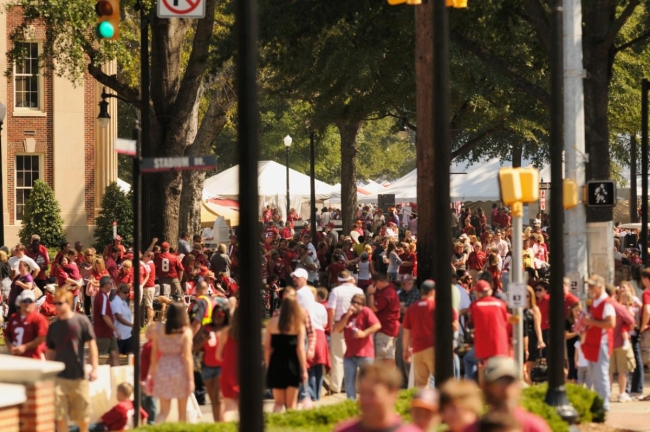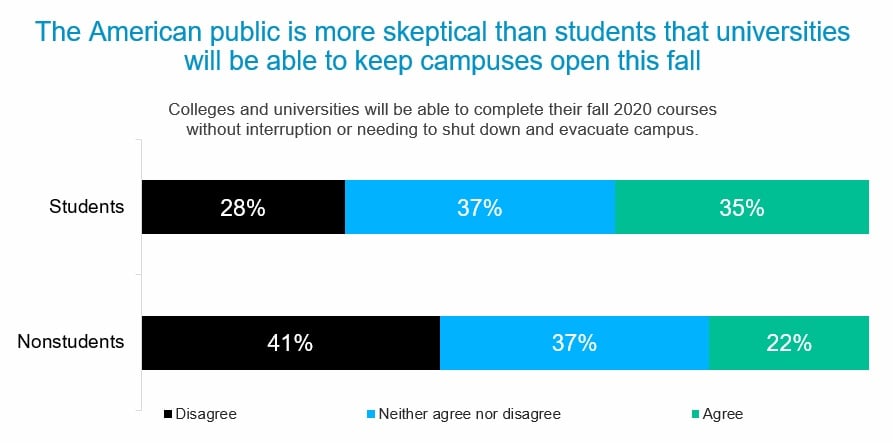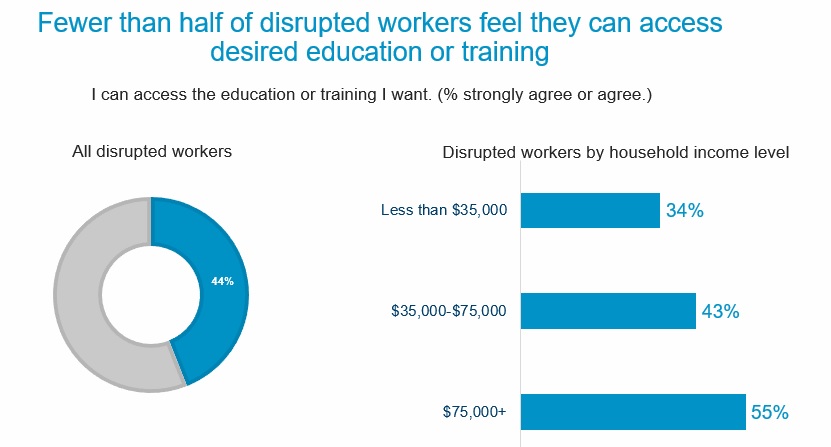You have /5 articles left.
Sign up for a free account or log in.

iStock.com/sshepard
New polling data suggests American college students are more likely than the general public to believe universities should bring at least some students back to campus. The latest findings also show that people who saw their work disrupted by the pandemic are now more likely to want to enroll in education or training, though only half feel they can access the training they need.
The polling is the latest
In this week's data, college students were less likely than other respondents to say they thought universities should hold an online semester. Only 26 percent of college students said offering "only online classes" was the right way to go, while 40 percent of non-student respondents said they felt that way.
More than half of college students surveyed said they believe universities should bring some students back to campus and run hybrid classes, while 22 percent said universities should allow all students to return for in-person classes. Of non-college respondents, only 43 percent said they thought bringing some students back was the right idea and only 17 percent thought a fully in-person semester would be best.
"If you're a young person of traditional college age who's had this expectation of what your college experience is going to look like, if you're attending a residential four-year school, it is often difficult to think about setting aside that vision for yourself and the kind of experience you're going to have," said Kyle Southern, director of higher education and workforce policy at Young Invincibles, an organization that seeks to amplify the voices of young adults. "Just to log on for 15 hours a week for a lecture or discussion group doesn't really comport with what people feel like their college experience was going to be."
Southern said some students also are likely skeptical because of negative experiences with online learning after the quick transition in the spring, while others might be experiencing food or housing insecurity that makes attending college in person more valuable.
But on the idea of an irreplaceable college experience, Southern said students are encouraged to think that way by parents who may have gone to college, pop culture, guidance counselors and recruitment materials from colleges themselves.
Fifty-six percent of college students surveyed also said they believed the education offered this fall will be less valuable than what colleges offered last fall.
Additionally, this week's data set suggested that Americans who saw their work disrupted by the pandemic are expressing greater interest in higher education, but are divided on whether education or training is valuable.
Thirty-eight percent of those respondents said the pandemic made them more likely to enroll in an education and training program, but only 45 percent of disrupted workers believed education or training would be worth the cost. Only 44 percent of disrupted workers said they believe they can access the education and training they want. Among disrupted workers who make less than $35,000, that percentage went down to 34 (see below).
The survey also found that the number of people who believe we're in the pandemic for the long haul has increased steadily. In April, less than 15 percent of respondents believed the pandemic would impact them for more than a year. Now, over 40 percent do.
(Note: Inside Higher Ed and Strada Education Network partner on Public Viewpoint. Strada provides funding to Inside Higher Ed to support its coverage of the polling data and related workforce issues. Inside Higher Ed maintains editorial independence and full discretion over its coverage.) 




